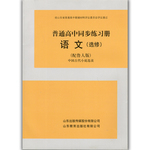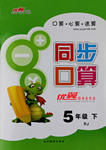题目内容
— Yes, I can't agree more.
B. How funny
C. What fun
D. What a fun

 海淀黄冈名师导航系列答案
海淀黄冈名师导航系列答案 普通高中同步练习册系列答案
普通高中同步练习册系列答案 优翼小帮手同步口算系列答案
优翼小帮手同步口算系列答案Once Dr. Mellinkoff invited me to join him at the hospital to discuss interesting cases(案例, 病例) with his students.The case at hand was a Guatemalan man, aged 34, who had a fever and many other medical problems.His condition was not improving, and there was not much hope he would live.
Dr.: Mellinkoff asked to see the patient.He introduced himself in Spanish and, in a very gentle voice, asked how he felt.The patient smiled and said everything was all right.Then the doctor asked if he was able to eat.The patient said that he had no desire to eat.
"Are you getting food you like?"
The patient said nothing.
"Do you get the kind of food you have at home?"
The answer was no.
The doctor put his hand on the man's shoulder and his voice was very soft.
"If you had food that you liked, would you eat it?"
"Yes, yes," the patient said.
The change in the patient's appearance couldn't have been more obvious.Nothing was said, but it was easy to tell that a message had been sent and had also been received.
Later, the doctor asked why the Guatemalan man wasn't getting food he could eat.One of the students said, "We all know how difficult it is to get the kitchen to make special meals."
"Suppose," the doctor replied, "you felt a certain medicine was absolutely necessary but that our hospital didn't carry it, would you accept defeat or would you insist the hospital meet your request?"
"I would probably insist," the student said.
"Very well," the doctor said."You might want to try the same method in the kitchen.It won't be-easy, but I can help you.Meanwhile, let's get some food inside this man as fast as possible, and stay with it.Or he'll be killed by hunger.By the way, there must be someone among you who can speak Spanish.If we want to make real progress, we need to be able to talk with him."
Three weeks later.Doctor Mellinkoff told me that the Guatemalan man had left the hospital under his own power.It takes more than medicine to help sick people; you also have to talk to them and make them comfortable.
【小题1】The patient had no desire to eat because __________________.
| A.he was not hungry |
| B.he was seriously ill |
| C.he was given special meals |
| D.he was not satisfied with the food |
| A.the patient’s native language was Spanish |
| B.the patient’s illness was caused by hunger |
| C.Dr. Mellinkoff performed an operation on the patient |
| D.the hospital failed to provide the right medicine for the patient |
| A.Cold. | B.Considerate. | C.Curious. | D.Careless. |
| A.Doctors should be good at foreign languages. |
| B.Doctors should know their patients’ real problems. |
| C.Doctors should try to improve their medical skills. |
| D.Doctors should have a good relationship with their patients. |
All over the world people enjoy sports. Sports help to keep people healthy and happy, and to live longer.
【小题1】 They buy tickets or turn on their TVs to watch the games. Often they get very excited when their player or team wins.
【小题2】 Football, for example, has spread around the world. Swimming is popular in all countries near the sea or in those with many rivers. What fun it is to jump into a pool or lake, whether in China, Egypt or Italy! 【小题3】 Think how many lovers to skate or ski in Japan, Norway or Canada.
Some sports or game go back thousands of years, like running or jumping. Chinese wushu, for example, has a very long history. But basketball and volleyball are rather new. Neither one is a hundred years old yet. 【小题4】 Water-skiing is one of the newest in the family of sports.
People from different countries may not be able to understand each other, but after a game together they often become good friends. 【小题5】 One learns to fight hard but fight fair, to win without pride and to lose with grace.
| A.And think of people in cold countries. |
| B.Sports help to train a person’s character. |
| C.Not a few people participate in different sports competitions themselves. |
| D.Many people like to watch others play games. |
F.Some sports are so interesting that people everywhere take part in them.
G.People are inventing new sports or games all the time.